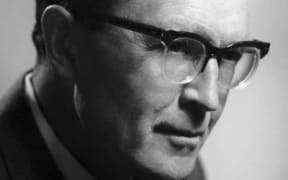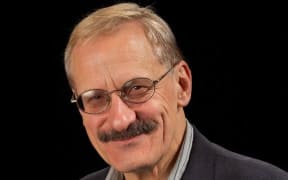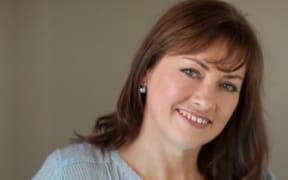Programme Three: 30 October 2015
Alexandra Hay: White Rain
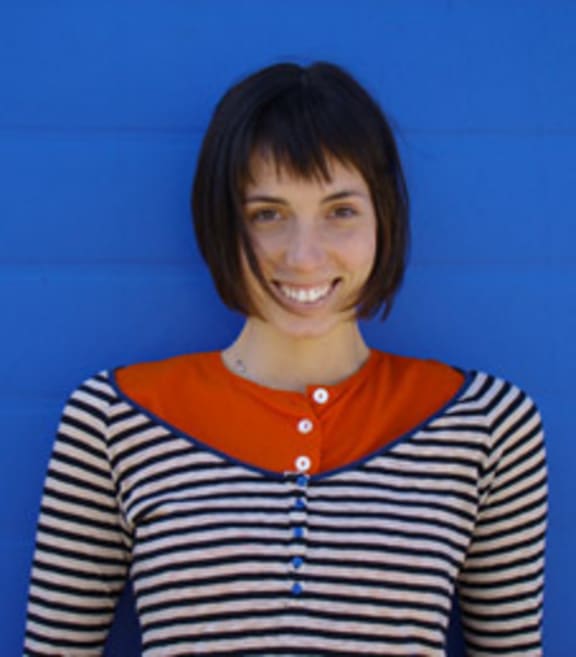
Alexandra Hay Photo: SOUNZ
Composer and sonic artist Alexandra Hay studied at the New Zealand School of Music in Wellington, and the Freie Universität in Berlin under a DAAD scholarship. Her work has been performed in New Zealand, Australia, Europe and the USA by ensembles including Stroma, Duo Stump-Linshalm, Chronology Arts and The Song Company; and in festivals Asia Pacific 2007, Nuovi Spazi Musicali (Italy) 2008, and in the 2010 ISCM World New Music Days. Alexandra was the recipient of the 2008 NZSO Todd Corporation Young Composer Award and the 2011 NZSO National Youth Orchestra Composer Residency. She lives in San Francisco, and is a doctoral student and Fulbright Fellow studying with Mark Applebaum and Brian Ferneyhough at Stanford University.
White Rain was written for flutist Monique Hay and electronics. It won the 2006 Victoria University Composers Competition. Alexandra says: "Silver is the best reflector of visible light known. When raw silver is heated to 2162ºc it becomes a brilliant boiling white liquid. A compound of the same metal (silver iodide) is used to seed clouds to produce rain."
Brigid Bisley: Illumination
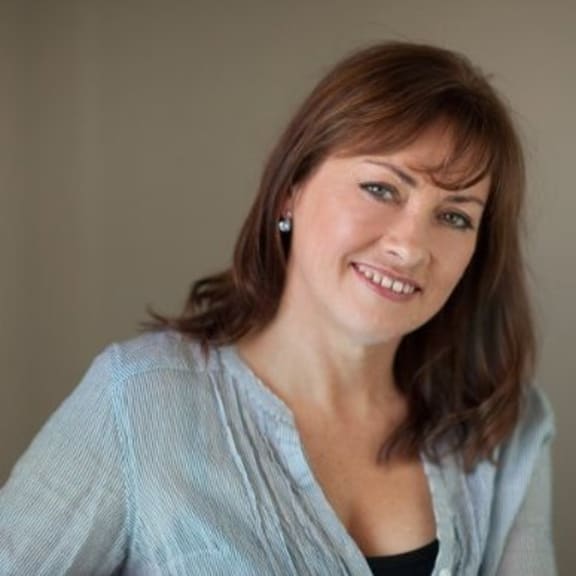
Brigid Bisley Photo: Supplied
Brigid Bisley was born in Hamilton and studied performance violin and composition at Auckland University. She attended tutorials and masterclasses under the guidance of Brian Ferneyhough in Germany, and was a finalist in the SOUNZ Contemporary Award in 1999 for her song cycle 'Come Back Safely'. As a conductor she founded the Waitakare City Orchestra, and receives regular commissions as a freelance composer.
Brigid says: “Illumination, composed in 2002, arose from my long held fascination with light, and its relationship with darkness and colour. The word “Illumination” was chosen for several of its meanings: the use of light and shadow in art; spiritual illumination; and decoration with gold, silver and bright colours, as in medieval manuscripts. Being a work for large orchestra, writing this work gave me the opportunity to experiment with timbral and textural combinations to create light - sometimes gentle, sometimes blinding, sometimes piercing through darkness, sometimes illuminating or intensifying colour, or throwing a shadow."
Jack Body: Paradise Regained
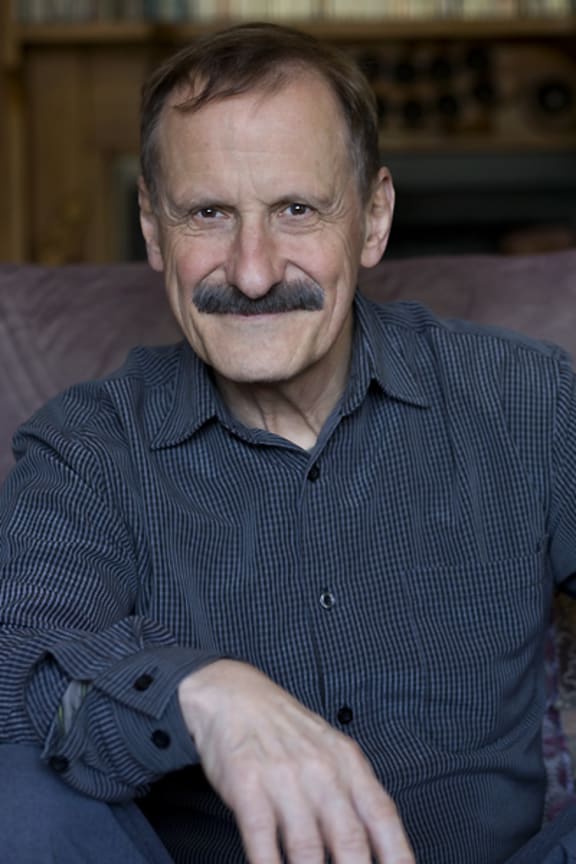
Jack Body Photo: Gareth Watkins / Lilburn Trust / Wallace Arts Trust
Jack Body’s music covers almost all genres, including solo and chamber music, orchestral music, music-theatre, music for dance and film as well as electroacoustic music. A fascination with the music and cultures of Asia, particularly Indonesia, has been a strong influence. He has been commissioned by the Auckland Philharmonia, NZ String Quartet, NZSO, BBC Scottish Orchestra and many other groups, and has written three works for the Kronos Quartet.
In 1999 he was awarded a New Zealand Order of Merit for his services to music, and in 2004 he was honoured by the Arts Foundation of NZ as a laureate. Jack was a passionate advocate for New Zealand music, beginning with the Sonic Circus series of concerts in Wellington in the 1960s. He organised three Asia Pacific Festivals featuring the contemporary and traditional music of New Zealand and our Asian neighbours. Jack was the editor of Waiteata Music Press from 1981 until his retirement in 2013.
Paradise Regained was written to commemorate the Bali bombings, and was premiered at the 2004 New Zealand International Arts Festival by Emma Sayers (piano) and I Wayan Gde Yudane (gangsa).
Douglas Lilburn: Symphony No 3
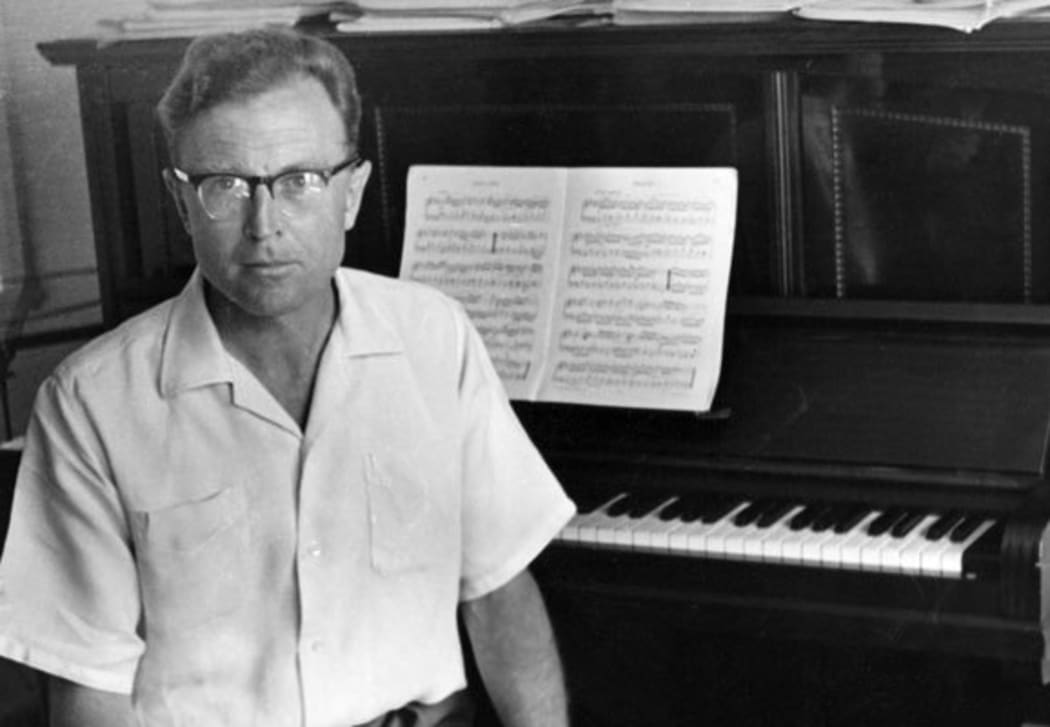
Douglas Lilburn Photo: Alexander Turnbull Library
Douglas Lilburn was born in Wanganui in 1915. He moved to Christchurch to study at Canterbury University College, and went on to the Royal College of Music, London. He was tutored in composition by Ralph Vaughan Williams and remained at the College until 1939.
He returned to New Zealand the following year, and worked in Christchurch as a freelance composer and teacher. In 1947 Douglas Lilburn shifted to Wellington to take up a position at Victoria University, and moved up the ranks to a Professor. In 1966 Lilburn founded the Electronic Music Studio at the University and was its Director until 1979, a year before his retirement. He was presented with the Composers’ Association of New Zealand (CANZ) Citation for Services to New Zealand Music in 1978. In 1988 he was awarded the Order of New Zealand. Douglas Lilburn, described as “the elder statesman of New Zealand music” and the “grandfather of New Zealand music,” died peacefully at his home in Wellington on 6 June 2001.
Lilburn’s musical output can be categorized into three distinct phases. The first phase was strongly influenced by composers such as Vaughn Williams and Sibelius and included his first two symphonies; in the second phase he explored the Second Viennese School, Stravinsky, and contemporary American composers. The Third Symphony is a result of this second phase and was the last major work he wrote before abandoning traditional instrumental forces to focus almost entirely on electroacoustic music.
